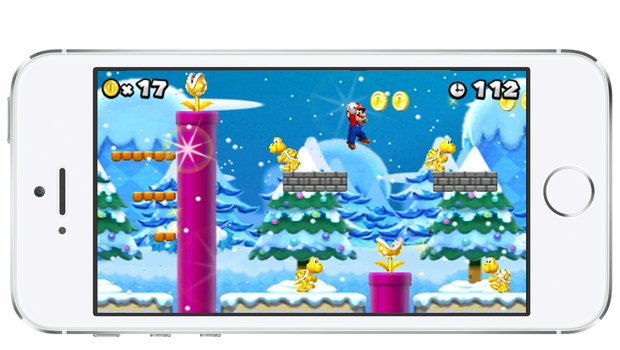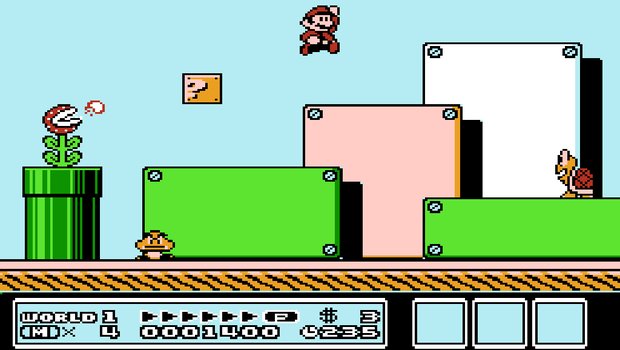Youre an idiot if you think Nintendo should make iOS games
Enough is enough, Nintendo naysayers! It seems that every time Nintendo president Satoru Iwata talks to investors or to the media, he has to field questions about why Nintendo hasn’t started making its games available on iOS. When the topic came up last month, Iwata was polite with his response, and he explained how hardware and software developers under the same roof are able to stimulate one another’s creativity. But the real answer is this: doing so would be utterly stupid from a business perspective.
The argument that Nintendo needs to make iOS games is built on a faulty assumption: namely, if the company doesn’t change its strategy, possibly becoming software-only, it’s going to go out of business. This could be true some day, but it sure isn’t going to happen any time soon. It’s commonly assumed that Nintendo’s hardware is performing spectacularly bad, but that just isn’t so. The Nintendo 3DS was the best-selling game system in August of this year in North America, and as of April, the 3DS had sold more than 33 million units worldwide, with more than 8 million coming from the US. Sure, that’s not nearly as good as the DS performed by that point in its lifecycle, and there’s no way to claim that the Wii U is a hit, but Nintendo is still managing to nail some impressive numbers amidst fierce competition.

Furthermore, Nintendo is sitting on massive amounts of reserve cash--somewhere in the neighborhood of $12 billion, according to its last annual financial report. Nintendo could string together several significant yearly losses before it’s in any financial jeopardy. And, just as importantly, Nintendo isn’t taking losses on an annual basis--it’s still making a profit, albeit one that’s less than a lot of people would like.
But even if Nintendo’s finances were in the crapper, there would be numerous reasons for not jumping on the iOS bandwagon. First of all, Nintendo’s philosophy and approach to game design is a poor fit for the iOS business model. Nintendo spends years making polished, deep experiences, attempting to hone every aspect and provide a premium product for a premium price. I’m not suggesting that there aren’t great iOS games out there, but for the most part, they aren’t designed with the attention to detail of a Nintendo title. Audiences have been taught that iOS games should sell at rock-bottom prices, too; if Nintendo made an iOS title, they’d be laughed out of the App Store were it priced like a Wii U or a 3DS game, so they’d have to sell it for a tiny fraction of the usual cost. It’s possible that increased sales could make up for selling a game at 1/30th of the usual cost, but that’s an awfully big gamble. If Nintendo spent the usual amount of effort making a game and then sold it at typical iOS prices, it could be a financial disaster.
Additionally, most of Nintendo’s franchises are a poor fit for an iOS interface. Building a game for specific hardware from the ground up isn’t only what separates a good iOS game from a bad one, but also the reason why Nintendo’s games work so well. Sure, adapting titles like Animal Crossing, Nintendogs, Elite Beat Agents, or The Legend of Zelda: Phantom Hourglass to a purely touch-screen interface wouldn’t be an issue, but I can’t begin to imagine playing something like New Super Mario Bros. Virtual D-pads, for the most part, suck, and they aren’t at the point where I’d want to control Mario (or anything else that required pinpoint precision) that way. The standardized iOS game controller support in iOS 7 could help, but controllers are owned by only a small percentage of Apple device users.
“But wait!” one might say. “What about Nintendo’s back catalog? Surely Nintendo could just port over loads of classic NES and Super NES games and call it a day, right? They wouldn’t even need to let go of their current business model for that!” Again, it’s not that simple. Aside from the aforementioned control issues, it ignores the fundamental fact that Iwata alluded to in his recent statement: Nintendo is both a hardware and a software company. It’s about much more than just the games. Software moves hardware, and Nintendo hardware’s biggest selling point is that players can only get that Nintendo experience (legally) on Nintendo systems. To tell the world that they can get that experience elsewhere--especially those beloved, classic titles--is to say “here’s one less reason to buy our product.” Sales would probably soar initially, but in the long term, Nintendo would discover they’d given away the ship that was keeping them afloat. Nintendo could very easily find itself in a position like Sega, which went multiplatform only to discover that the broadened audience they thought would support them wasn’t necessarily there.

Presumably the investors encouraging such moves to mobile are people who jumped onboard during the heyday of the Wii or after the success of casual hits like Brain Age and Nintendogs, and expected Nintendo to be a part of one massive fad after another; they don’t really care about the long-term welfare of the company as long as they’re able to get a quick return on their investment. The fact is that while Nintendo is great at creating a paradigm shift every decade or so, it isn’t what they’re built on; on the contrary, Nintendo was the company that proved that video games weren’t a fad and were part of an industry that would be around for decades to come. Whatever you may think of Nintendo, you have to admit that they’re in this for the long haul.
Weekly digests, tales from the communities you love, and more
With all that said, there is one simple solution for Nintendo that might make everyone happy: it should bring its properties to iOS. “Excuse me, but didn’t you just write 1,000 words about why that’s a stupid idea?” That’s true, but I’m not talking about games. I’m talking about everything BUT games. Official Nintendo clock apps. Official Nintendo calendar apps. Messaging apps. Things that could make the Nintendo brand more relevant to the iOS audience, and could encourage them to check out the wider world of Nintendo. Supposedly there’s a Miiverse app in the works, so perhaps such ideas could soon become reality. Heck, maybe they could even revive Nintendo Power as an iPad-only product. (OK, so that one’s probably a bit too far-fetched.) The point is that Nintendo has a lot of good options available to it to strengthen its brand--but none of them involve bringing its games onto iOS.
Nintendo might not always make the correct decisions, but when it comes to keeping its games strictly on Nintendo hardware and away from iOS, it’s the smart thing to do.
You know that kid at parties who talks too much? Drink in hand, way too enthusiastic, ponderously well-educated in topics no one in their right mind should know about? Loud? Well, that kid’s occasionally us. GR Editorials is a semi-regular feature where we share our informed insights on the news at hand. Sharp, funny, and finger-on-the-pulse, it’s the information you need to know even when you don’t know you need it.
Chris is the former senior editor of Nintendo Power and the former editor at Mac|Life. He's now a freelance writer, and a huge fan of RPGs, Mega Man, The Legend of Zelda, Ace Attorney, and Japanese gaming in general.



